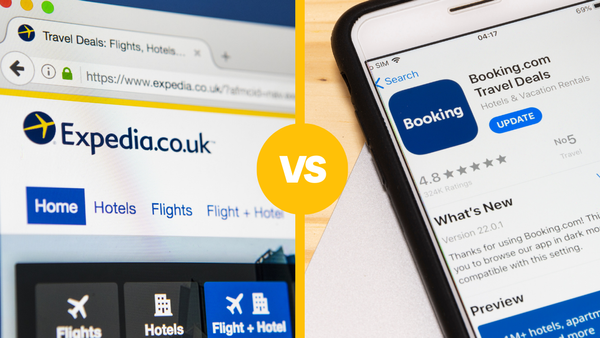Vacation Rental Hosts’ Survival Guide to Vrbo Taxes and Fees

Keeping track of Vrbo taxes and fees might not impact the guest experience directly, but it is still a crucial activity that property owners have to take care of.
By knowing how your money flows in and out of your short-term rental business, you will get a more accurate picture of how profitable it really is. Plus, it will also help you to determine if using a platform, like Vrbo, continues to be worthwhile when considering the total cost.
Just like Airbnb, Booking.com, and other popular vacation rental platforms, Vrbo also charges hosts and guests a number of fees. Hosts across all platforms will also need to consider their tax situation based on rental income.
Read on to discover what you will need to budget for and uncover top practical tips that will help you to stay on top of the financial paperwork.
How Do Taxes Work on Vrbo?

Vrbo tax rules can differ from one area to the next, so it’s important to do research on your local tax requirements.
However, in general, if you generated more than 200 reservations that added up to over $20,000, Vrbo will send you a Form 1099-K to complete. That said, if you did not receive any form, it does not mean that you do not have to pay any tax. Vrbo is under a legal obligation to report your income to the IRS, but it remains your responsibility to check that everything gets reported and paid accurately.
Should All Vrbo Hosts Pay Taxes?
If you rent out your property for less than 14 days per year in total, you do not have to report any rental income that you generated via direct bookings, Vrbo, Airbnb, or any other vacation rental platform. However, if you qualify for this 14-day rule tax exemption, it also means that you will not be able to deduct any business-related expenses.

What Types of Taxes Would Vrbo Hosts Need to Pay?
Each jurisdiction has its own set of Vrbo tax rules. So, it is key that hosts contact their local authorities for more details about their area’s specific rules and regulations. Irrespective of where you stay, these are the types of taxes that Vrbo hosts will typically need to pay:
1. Rental income tax
Vrbo is a US company which means that they need to gather the taxpayer details of the hosts who choose to list on their platform and might generate a US-sourced income. Vrbo might also need to use the details that you have provided to prepare a tax form on your behalf. In this case, they will mail the required tax documentation to the postal address that you shared with your taxpayer details.
2. Lodging tax
Vrbo is also required by law to gather and pay certain local taxes for online bookings in certain areas. These lodging taxes (also known as tourist tax, hotel tax, room tax, or occupancy tax) vary based on location. It can be worked out using a flat rate or percentage, the type of rental property that was booked, or the number of guests or nights.
If your jurisdiction requires Vrbo to collect and remit these taxes, the taxes collected will be shown automatically in the amount to pay. Once the booking has been confirmed, it will also show on the receipt. If you do not live in one of the select areas, it will be your responsibility to collect the lodging tax and remit it yourself.

3. Value Added Tax (VAT)
Hosts in Australia, Japan, Switzerland, Norway, and countries that form part of the European Union (EU) need to pay VAT too. This tax gets assessed on the supply of services and Vrbo is required by law to collect VAT on booking/subscription fees and service fees.
Will Vrbo Withhold Taxes For Me?
As mentioned earlier, Vrbo will request your taxpayer details because they have a duty to report all US-sourced income to the Internal Revenue Service (IRS). Unlike Airbnb, Vrbo does not have a policy in place that will withhold income from your payout, so in most circumstances, you will need to file and direct deposit your tax payment yourself. However, they do automatically withhold 30% for non-US residents who have a property listed in the United States. To prevent this, you will need to submit Form W-8ECI to show that you are exempted from tax.

How Do I Report My Vrbo Taxable Income on my IRS Tax Return?
You will need to report the gross income that you have generated via your short-term rental listings on Vrbo. In other words, this refers to all the revenue that you received from your bookings before any Vrbo fees or refunds were deducted. Generally, the more revenue you earn, the more tax you will need to pay.
The good news is that there are a number of expenses that you can deduct. This will help to lower your tax obligation. The following business-related expenses are examples of tax deductions:
- Maintenance costs
- Cleaning fees and supplies
- Property insurance
- Water
- Gas/electricity
- Internet
- Vrbo service fee/ owner fees
- Furniture
- Appliances
- Marketing
You will also be able to deduct a percentage of your:
- Mortgage interest
- Property taxes
- Utilities
Note: Refundable damage deposits are not included as a business-related expense. Also, it’s important to adjust your taxable income for cancellations and cancellation fees, so that your tax return is based on the correct revenue amount. This can get complicated, so it’s best to consult with a tax professional.
How Do Vrbo Fees Work?

Vrbo will also collect fees. These should not be confused with taxes. These fees get paid to Vrbo directly for the service that they are providing to hosts. While all hosts need to pay these fees if they want to make use of Vrbo, it is regarded as a tax-deductible expense.
What Fees Do Vrbo Hosts and Property Owners Pay?
Vrbo hosts can choose between two different service fee models. Here are the two options and how they work:
1. Pay-Per-Booking Service Fees
With the pay-per-booking model, short-term rental hosts will only get charged for the listings that get booked. You can expect to pay about 8% per booking (a 3% payment processing fee and a 5% commission fee), but it could be higher. For example, if you use a property management software solution, you can get charged a booking fee of 5% for bookings made via one of Vrbo’s family sites.
Much like Airbnb fees, Vrbo works out the commission fee by using the rental amount and any additional fees, like a pet fee or cleaning fee, that you might charge the guests.
The payment processing fee of 3% is worked out using the total payment amount that you receive from the guest. This includes taxes and refundable damage deposits. However, if you return the damage deposit, the processing fee that was charged for this amount will also get returned to you.
Hosts will also get access to special features like a reservation calendar and reservation tools that hosts who opted for the annual subscription model get.
This option is attractive if you plan on renting out your listing only during certain times of the year.

2. Annual Subscription Service Fees
If hosts opt for the annual subscription model, they will need to pay only a yearly fee of $499. In addition to a year subscription to the platform, hosts will also get special features such as:
- Access to a Reservation Manager
- 50 high-definition photos
- An interactive map
- A reservation calendar
If you know that you will have enough bookings to cover the cost of this yearly subscription fee easily, this option will be the wiser move.

Which Taxes and Fees Are Passed On to Travelers?
There are a number of fees and taxes that travelers might have to pay. These include:
- VAT
- Cleaning fee (this can be anything from $30 to $200 depending on the location, length of stay, and property’s size)
- Pet fee (this can be anything from $30 to $150 to make up for the extra wear and tear)
- A service fee/booking fee (typically between 7% and 10% of the rental amount)
- Admin fees (if the property is managed by property managers they could add an admin fee of about $200)
- Extra guest fee
- Refundable damage deposit (this can be anything between $200 and $500)

Top Tips Every Vrbo Property Manager and Owner Needs to Stay On Top of Fees and Taxes
There are a number of fees that hosts and property managers need to keep in mind and plan around if they want to leverage Vrbo and remain profitable. To help you stay on top of everything, here are a few practical tips:
1. Keep Thorough and Accurate Records of Income and Expenses
The last thing you want is to pay more than you should on taxes. That being said, you also do not want to find out too late after you have spent all your money that you still owe some outstanding tax to the IRS. For this reason, it is key that you make a habit of recording your income and expenses.
You will also need to keep track of how many days per year you rent out your property. It might just be that you qualify for the 14-day rule if you rent out for less than two weeks.
2. Use Vacation Rental Software to Keep Track of Your Business Records
Not only is it a good idea to hire the services of a professional tax practitioner who is familiar with short-term rentals, but it is also advisable to invest in other tools that can help you with record-keeping.
To streamline daily tasks and save time, you can turn to a vacation rental software solution such as iGMS, which can help you manage the following key tasks:
- Managing multiple accounts and listings on the major vacation rental platforms, including Vrbo
- Organizing your messages and email into a single feed and using automated templates and triggered messaging to improve guest communication
- Automating the process of guest reviews
- Managing direct bookings using a direct booking management toolkit
- Receiving payouts and creating invoices by connecting your Stripe account to iGMS
- Creating your own direct booking website in minutes
- Sharing daily schedules with your team and auto-assigning tasks.

3. Apportion Your Expenses and Deductions if You Don’t Rent Out Your Whole Property

If you do not rent out an entire property, it is even more important that you keep accurate records of your expenses. Otherwise, it is easy to create tax issues for yourself.
The last thing you want is to create the impression that you are trying to deceive your local tax authority by claiming expenses that did not benefit your business.
4. Fill in a W-9 Form
If you do not complete a W-9 form and share it with Vrbo, they are obligated to withhold a percentage of your rental income. This can be as high as 30%.
Considering that your effective tax rate will probably be lower, by not completing the tax form, the relevant authority may keep your overpayment for a whole tax year.
5. Minimize Fees by Attracting Direct Bookings via Your Own Website
By now, you have probably come to realize that all the extra fees that booking sites charge can quickly add up to a pretty penny. One way that you can reduce these other fees is by creating your own website and taking direct bookings.
You can run this direct booking website in addition to your listings on OTAs to ensure that you still pop up in as many search results as possible.
For example, if you signed up with iGMS to help you manage your daily tasks, you will also get access to a website builder that makes it easy to build a mobile-friendly, easy-to-use website of your own.
For more information about all the features and benefits, you can check out this article: How to Build Your Own Direct Booking Website to Multiply Your Revenue.
6. Don’t Forget About Self-Employment Tax
In the US, the IRS may view you as self-employed if you rent out your vacation home and provide services. The implication is that you will also have to pay self-employment tax on top of the other income taxes that you already pay. This amount will go towards Social Security contributions and Medicare.
7. Know Your Local Tax Rules
Tax rules can differ quite significantly based on the state in which you are located. So, to ensure that you report your rental income correctly, it is key that you familiarize yourself with the local tax rules, even if you plan on working with a tax practitioner.
Conclusion
While sorting through Vrbo fees and tax records may seem overwhelming at first, taking a methodical, organized approach can make the job a whole lot easier. By using vacation rental tools like iGMS software, you will be able to automate a lot of the record-keeping to streamline the process even further and become a pro at the day-to-day operations of your business.
About the Author
Callan Riddles is the Content and Social Media Specialist at iGMS. Callan has a passion for finding new ways to help vacation rental businesses thrive. In her free time, she loves to travel, read, and experience all the new things that life has to offer.






